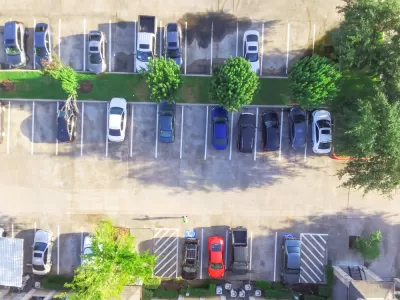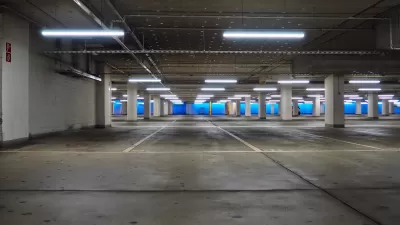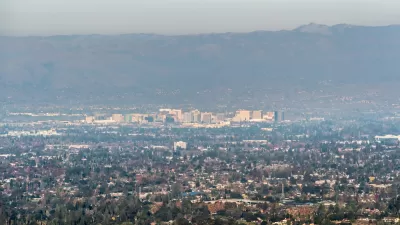The city of San José has the highest minimum parking requirements in the state. Now, it is weighing a proposal that would do away with them altogether and let developers decide how much parking to build.

Maggie Angst reports on the city of San José's proposed elimination of minimum parking requirements, a move that would reduce the cost of new construction and free developers from outdated mandates.
According to Jared Hart of the city’s planning department, one of the ordinance's key goals is "to rightsize parking by effectively removing an arbitrary required zoning code and allow developers to decide on the appropriate amount of parking based on a project’s location, tenants and access to transit." This would provide a more "market-based approach" to parking to ensure more appropriate levels of parking at new developments.
"The elimination of minimum parking requirements not only would provide developers with more leeway to decide the adequate amount of parking spaces for new projects on an individual basis, but it would also allow existing businesses to move into older buildings that may not meet current parking minimums or convert existing parking spaces into permanent outdoor dining areas." The plan would also move San José closer to its goal of reducing single-driver commute trips to 25% by 2040.
Some critics of the plan worry that it would create hardship for low-income residents in a city "which lacks robust public transit options and already suffers from parking shortages in neighborhoods across the city." But San José's minimum parking requirements exceed those of every other major California city, even surpassing famously car-centric Los Angeles.
"The city council will decide whether to approve the plan at a meeting in January 2022."
FULL STORY: ‘Recipe for hardship’ or ‘visionary move’? San Jose weighs eliminating parking requirements

Alabama: Trump Terminates Settlements for Black Communities Harmed By Raw Sewage
Trump deemed the landmark civil rights agreement “illegal DEI and environmental justice policy.”

Planetizen Federal Action Tracker
A weekly monitor of how Trump’s orders and actions are impacting planners and planning in America.

The 120 Year Old Tiny Home Villages That Sheltered San Francisco’s Earthquake Refugees
More than a century ago, San Francisco mobilized to house thousands of residents displaced by the 1906 earthquake. Could their strategy offer a model for the present?

LA’s Tree Emergency Goes Beyond Vandalism
After a vandal destroyed dozens of downtown LA trees, Mayor Karen Bass vowed to replace them. Days later, she slashed the city’s tree budget.

Sacramento Leads Nation With Bus-Mounted Bike Lane Enforcement Cameras
The city is the first to use its bus-mounted traffic enforcement system to cite drivers who park or drive in bike lanes.

Seattle Voters Approve Social Housing Referendum
Voters approved a corporate tax to fund the city’s housing authority despite an opposition campaign funded by Amazon and Microsoft.
Urban Design for Planners 1: Software Tools
This six-course series explores essential urban design concepts using open source software and equips planners with the tools they need to participate fully in the urban design process.
Planning for Universal Design
Learn the tools for implementing Universal Design in planning regulations.
Ada County Highway District
Clanton & Associates, Inc.
Jessamine County Fiscal Court
Institute for Housing and Urban Development Studies (IHS)
City of Grandview
Harvard GSD Executive Education
Toledo-Lucas County Plan Commissions
Salt Lake City
NYU Wagner Graduate School of Public Service





























